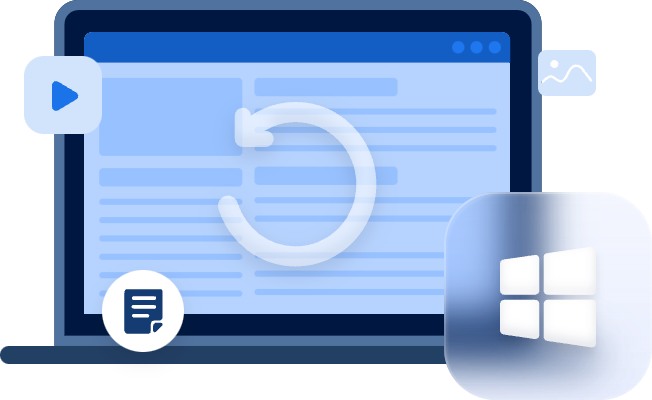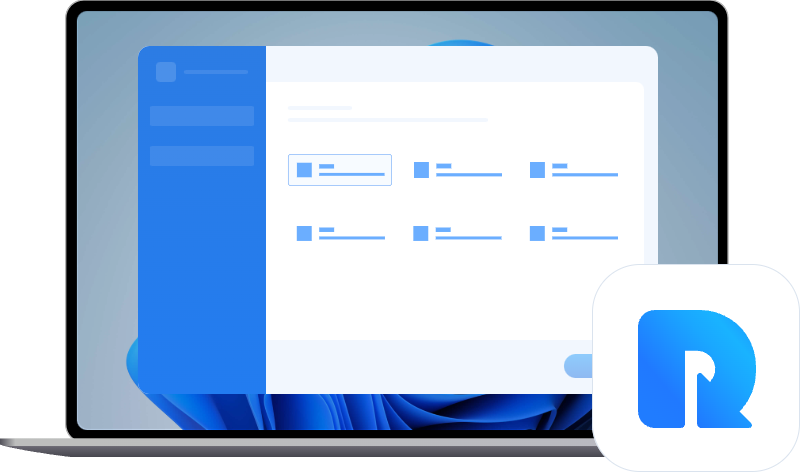A Guide to Checking Computer Performance Health in Windows Security
This article guides you through the process of checking and improving computer performance health within the Windows security framework. It covers essential steps, tips, and introduces MyRecover as a solution for optimized PC performance.
In today's digital age, where our reliance on computers is ever-growing, ensuring the smooth operation of our devices is paramount. One crucial aspect often overlooked is the health of our computer's performance within the Windows security ecosystem. Let's delve into understanding how to assess and enhance your PC's performance effectively.
Introduction
Your computer's performance health is akin to the vitality of your body. Just as you prioritize your health for optimal functioning, monitoring and maintaining your PC's performance health is essential for seamless operation. In this guide, we'll explore the significance of checking computer performance health within Windows security and provide actionable steps to ensure your system runs smoothly.
Understanding Computer Performance Health
Before delving into the intricacies of checking computer performance health, it's vital to grasp what this term encompasses. Computer performance health refers to the overall efficiency and functionality of your system. It encompasses various factors, including processing speed, memory usage, disk storage, and network connectivity. Any disruptions or inefficiencies in these areas can lead to sluggish performance and system instability.
How to Check Computer Performance Health in Windows Security
Now that we understand the importance of monitoring computer performance health, let's discuss how to assess it within the Windows security framework. Windows provides built-in tools that allow users to gauge their system's health and security status. Here are the steps to effectively check your computer's performance health:
Utilizing Built-in Windows Security Features:
Windows Task Manager: Access the Task Manager by pressing Ctrl + Shift + Esc or right-clicking on the taskbar and selecting Task Manager. Here, you can monitor CPU, memory, disk, and network usage, enabling you to identify resource-intensive processes.
Windows Security App: Navigate to Settings > Update & Security > Windows Security. Here, you can perform system scans, view security recommendations, and check for potential threats.
Third-party Tools for Comprehensive Analysis:
In addition to Windows' native utilities, several third-party software options offer more in-depth analysis of your computer's performance health. Programs like CCleaner, AVG TuneUp, and MyRecover provide comprehensive diagnostics and optimization features to enhance your system's efficiency.
Tips to Improve Computer Performance Health
Once you've assessed your computer's performance health, it's time to take proactive steps to optimize it. Here are some tips to improve your PC's performance:
Optimizing System Settings:
Disable startup programs: Limit the number of programs that launch at startup to reduce system resource usage.
Adjust visual effects: In the System Properties window, under the Advanced tab, click on Settings under Performance. Here, you can customize visual effects to prioritize performance over aesthetics.
Regular Maintenance Practices:
Keep your system updated: Ensure your operating system, drivers, and software are up-to-date to benefit from performance improvements and security patches.
Disk Cleanup: Regularly use the Disk Cleanup utility to remove temporary files, system cache, and other unnecessary data that can clutter your system and slow it down.
Introducing MyRecover: A Solution for Enhanced Performance
MyRecover is a cutting-edge software designed to streamline the process of optimizing your PC's performance. With its intuitive interface and powerful features, MyRecover offers a holistic solution for improving system efficiency and security. Key features include:
- Automated system scans to identify performance issues and security vulnerabilities.
- One-click optimization to streamline system resources and enhance speed.
- Real-time monitoring of system health, ensuring proactive maintenance and troubleshooting.
Customizable settings to tailor optimization strategies to your specific needs.
Conclusion
In conclusion, monitoring and maintaining your computer's performance health is crucial for ensuring optimal functionality and security. By following the steps outlined in this guide and leveraging tools like MyRecover, you can proactively enhance your PC's performance and enjoy a seamless computing experience. Remember, a healthy computer leads to increased productivity and peace of mind.
FAQs
1. Why is checking computer performance health important?
Regularly monitoring computer performance health allows users to identify and address potential issues before they escalate, ensuring smooth operation and minimizing downtime.
2. How often should I check my computer's performance health?
It's advisable to check your computer's performance health regularly, ideally on a monthly basis. However, if you notice any sudden slowdowns or unusual behavior, it's recommended to perform a check immediately.
3. Can MyRecover improve gaming performance?
Yes, MyRecover offers optimization features that can enhance gaming performance by prioritizing system resources and minimizing background processes, resulting in smoother gameplay and reduced lag.


